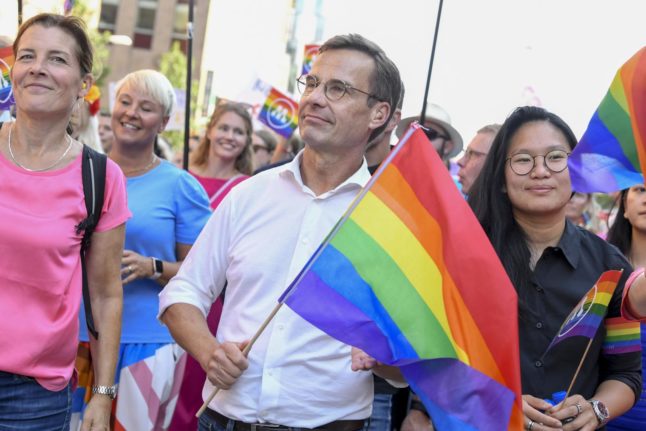The debate has also weakened conservative Prime Minister Ulf Kristersson’s standing, after he admitted to caving into pressure from party members on the issue.
Beyond lowering the age, the proposals also aim to make it simpler for a person to change their legal gender.
“The process today is very long, it can take up to seven years to change your legal gender in Sweden,” Peter Sidlund Ponkala, president of the Swedish Federation for Lesbian, Gay, Bisexual, Transgender, Queer and Intersex Rights (RFSL), told AFP.
Under the proposal, two new laws would replace the current legislation: one regulating surgical procedures to change gender, and one regulating the administrative procedure to change legal gender in the official population register.
If parliament adopts the bill as expected on Wednesday, people will be able to change their legal gender starting at the age of 16, though those under 18 will need the approval of their parents, a doctor, and the National Board of Health and Welfare.
A diagnosis of “gender dysphoria” – where a person may experience distress as a result of a mismatch between their biological sex and the gender they identify as – will no longer be required.
Surgical procedures to transition would, like now, be allowed from the age of 18, but would no longer require the Board of Health and Welfare’s approval.
The removal of ovaries or testes would however only be allowed from the age of 23, unchanged from today.
Gender dysphoria surging
A number of European countries have already passed laws making it easier for people to change their legal gender.
Citing a need for caution, Swedish authorities decided in 2022 to halt hormone therapy for minors except in very rare cases, and ruled that mastectomies for teenage girls wanting to transition should be limited to a research setting.
Sweden has seen a sharp rise in gender dysphoria cases.
The trend is particularly visible among 13- to 17-year-olds born female, with an increase of 1,500 percent since 2008, according to the Board of Health and Welfare.
While tolerance for gender transitions has long been high in the progressive and liberal country, political parties across the board have been torn by internal divisions over the new proposal, and academics, health care professionals and commentators have come down on both sides of the issue.
A poll published this week suggested almost 60 percent of Swedes oppose the proposal, while only 22 percent back it.
Some critics have expressed concerns about biological males in women’s locker rooms and prisons, and fear the legal change will encourage confused youths to embark down the path toward surgical transitions.
Others have insisted that more study is needed given the lack of explanation for the sharp rise in gender dysphoria.
Deep divisions
“There is a clear correlation with different types of psychiatric conditions or diagnoses, such as autism,” Annika Strandhall, head of the women’s wing of the Social Democrats (S-kvinnor), told Swedish news agency TT.
“We want to pause this (age change) and wait until there is further research that can explain this increase [in gender dysphoria cases]”.
RFSL’s Ponkala disagreed, saying the simplified process was important for transgender people, a “vulnerable” group.
“They face a lot of risks… We see that the political climate has hardened,” he said.
Kristersson, the prime minister, has defended the proposal as “balanced and responsible”.
But he has also admitted he wanted to keep the age at 18 but gave in to strong forces in his party.
His own government has been split on the issue, with the Moderates and the Liberals largely in favour and the Christian Democrats and Sweden Democrats against.
He has had to seek support from the left-wing opposition to get the proposal through parliament.
If adopted, the new law would come into force on July 1, 2025.
By AFPs Pia Ohlin and Viken Kantarci




 Please whitelist us to continue reading.
Please whitelist us to continue reading.
Member comments